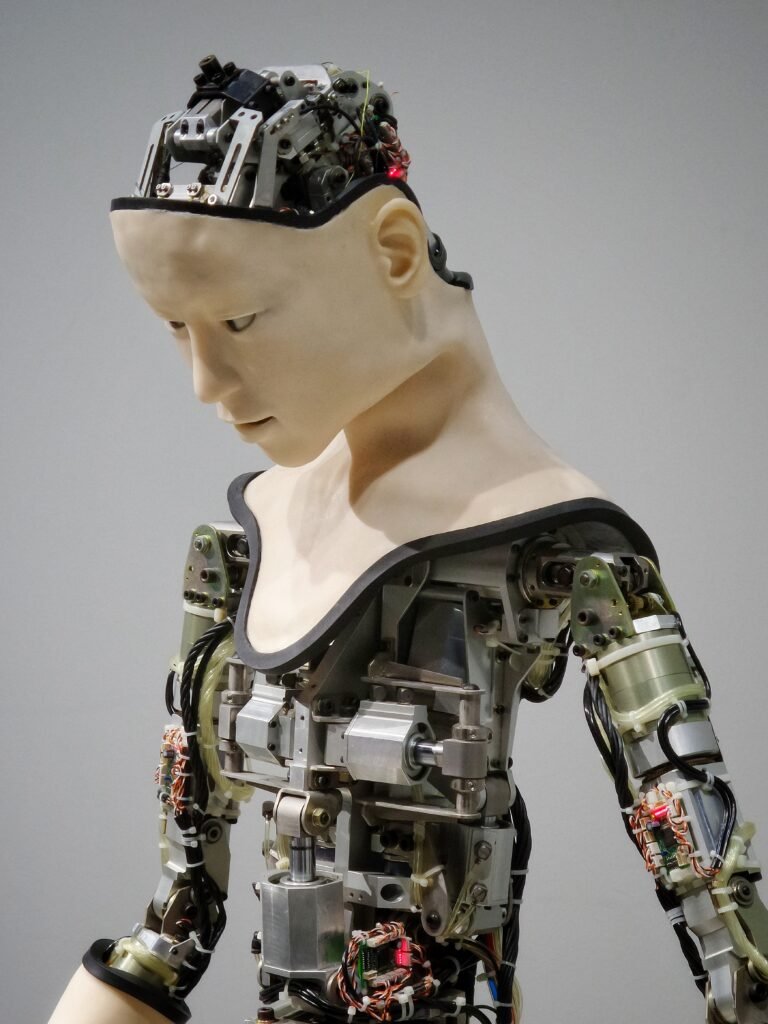Artificial Intelligence (AI) is a groundbreaking branch of computer science that has been transforming industries with its intelligent processing algorithms. Examples of AI applications include voice assistants like Siri and Alexa, self-driving cars, chatbots, and interactive video games. By combining vast sets of data with intelligent processing algorithms, AI has the ability to solve complex problems. Machine Learning (ML), a specific application of AI, enables computers to learn and improve based on experience and data. Deep Learning (DL), a form of ML, employs artificial neural networks to process information and make inferences. DL plays a vital role in tasks such as image recognition, speech recognition, and natural language processing. However, deep learning requires extensive data for training and is computationally more expensive compared to traditional machine learning. With its immense potential, AI has revolutionized various industries and is a key component of modern software development, with recent advancements focusing on utilizing large datasets and performing predictive analysis.
Artificial Intelligence

Overview of AI
Artificial Intelligence (AI) is a branch of computer science that harnesses the power of intelligent machines and applications to accomplish tasks, both with and without human intervention. AI systems are designed to mimic human intelligence in order to perform complex functions, analyze data, and make decisions.
Examples of AI
AI can be found in numerous applications and technologies that have become a part of our daily lives. Voice assistants like Siri and Alexa utilize AI to understand and respond to user commands. Self-driving cars use AI algorithms to navigate and ensure passenger safety. Chatbots provide automated customer support and interactive video games use AI to create immersive experiences.
How AI Works
AI operates by merging large datasets with intelligent processing algorithms. The gathered data is analyzed and used to develop models that can perform tasks and make accurate predictions. AI systems learn from past experiences and improve their performance over time. The algorithms used in AI are designed to adapt and make decisions based on the given data.
Machine Learning
Machine Learning (ML) is a specific application of AI that allows computers to learn and improve from experience and data. ML algorithms are trained using labeled datasets and can make predictions or take actions without being explicitly programmed. This ability to learn from data enables ML systems to continuously improve their accuracy and performance.
Deep Learning
Deep Learning (DL) is a form of machine learning that utilizes artificial neural networks to process information and make complex inferences. Deep learning algorithms are capable of deciphering patterns and relationships within large datasets, making it particularly valuable for tasks like image recognition, speech recognition, and natural language processing. However, deep learning requires a vast amount of data for training and is computationally expensive compared to traditional machine learning techniques.
Importance of Deep Learning
Deep learning plays a crucial role in the field of AI due to its ability to handle complex and unstructured data. It enables AI systems to understand and interpret information at a level of sophistication that was previously unattainable. The advancements in deep learning have greatly contributed to the development of AI applications that have transformed various industries.
AI in Industries

AI in Healthcare
The integration of AI in the healthcare industry has immense potential to revolutionize patient care. AI is being used to improve diagnostics by analyzing medical images and identifying patterns that human physicians may miss. This enhanced accuracy can lead to earlier detection of diseases, resulting in more effective treatment plans and improved patient outcomes. Additionally, AI is enabling personalized medicine by analyzing an individual’s genetic and medical data to create tailored treatment plans. Furthermore, AI is aiding in drug discovery by streamlining the identification and testing of potential drugs. AI is also being used in patient monitoring, allowing for real-time data analysis and early detection of changes in a patient’s condition, enabling faster interventions and better care.
AI in Finance
AI is transforming the finance industry by providing solutions that enhance efficiency and accuracy. One of the key areas where AI is making an impact is in fraud detection. AI algorithms can analyze vast quantities of data to identify patterns and anomalies that indicate fraudulent activity. This aids in preventing financial crimes and protecting both individuals and institutions. AI is also being utilized in risk assessment, helping financial institutions make data-driven decisions by analyzing large datasets and identifying potential risks. Automated trading is another area where AI is being leveraged to execute trades based on real-time data analysis and decision-making algorithms. Additionally, AI-powered chatbots are improving customer service by providing personalized assistance and resolving queries in a timely manner.
AI in Retail
AI is reshaping the retail industry and providing a personalized shopping experience for customers. Personalized recommendations are becoming increasingly common, as AI algorithms analyze customer behavior and preferences to make tailored product suggestions. This helps businesses increase customer satisfaction and drive sales. AI is also being used in inventory management, optimizing stock levels and ensuring that popular products are always available. Virtual shopping assistants are another application of AI in retail, enabling customers to interact with AI-powered chatbots that provide guidance and recommendations. Furthermore, AI is enhancing the overall customer experience by automating processes and improving the efficiency of operations.

AI in Manufacturing
The integration of AI in manufacturing is resulting in significant improvements in productivity and efficiency. Quality control is a key area where AI is making a difference, as algorithms can analyze large amounts of data to identify defects and ensure that products meet strict quality standards. Predictive maintenance is another application of AI in manufacturing, where AI systems analyze sensor data to predict and schedule maintenance tasks, preventing equipment failures and reducing downtime. Supply chain optimization is being transformed by AI, as algorithms analyze data from multiple sources to optimize inventory levels, delivery routes, and production schedules. Robotics and automation are also becoming increasingly prevalent, with AI-powered robots performing tasks that were previously done by humans, resulting in increased productivity and cost savings.
Challenges in Implementing AI
Data Privacy and Security
The implementation of AI raises concerns about data privacy and security. AI systems rely on vast amounts of data, including personal information, to function effectively. Ensuring the protection of this data is essential to prevent unauthorized access or potential misuse.
Ethical Concerns
AI raises ethical concerns, particularly in areas such as facial recognition, autonomous weapons, and algorithmic bias. The use of AI in these domains requires careful consideration of societal impact and the potential risks that may arise from the misuse or misrepresentation of AI technologies.
Lack of Skilled Workforce
The implementation of AI requires a workforce with specialized skills in data analysis, algorithm development, and machine learning. However, there is currently a shortage of professionals with the necessary expertise, making it challenging for businesses to effectively implement AI solutions.
Cost and Infrastructure
The implementation of AI often requires significant investments in infrastructure, including hardware, software, and computing resources. These costs can be prohibitive for smaller businesses, limiting their ability to leverage AI technologies. Additionally, maintaining and updating AI systems can also be costly, requiring ongoing investments.
Future Trends of AI
Big Data and Predictive Analysis
The future of AI lies in the utilization of big data and predictive analysis. As data continues to grow exponentially, AI algorithms will increasingly rely on analyzing vast datasets to extract meaningful insights and make accurate predictions. The ability to harness the power of big data will unlock new possibilities and enable AI systems to provide even more accurate and valuable solutions.
Integration with Internet of Things
The integration of AI with the Internet of Things (IoT) will create a network of intelligent devices that can communicate and collaborate seamlessly. AI-powered IoT devices will enable automated decision-making and real-time data analysis, leading to increased efficiency and productivity across various industries.
Natural Language Processing
Advancements in natural language processing (NLP) will enable AI systems to understand and respond to human language with greater accuracy. This will lead to more effective voice assistants, chatbots, and language translation services, enhancing human-computer interactions and making AI more accessible and user-friendly.
Explainable AI
As AI systems become more complex and autonomous, there is a growing need for transparent and explainable AI. Explainable AI algorithms provide insights into the decision-making processes of AI systems, allowing users to understand the rationale behind AI-generated decisions. This is crucial in domains where accountability and trust are paramount.
Conclusion
AI has made significant strides in revolutionizing various industries and has become an integral part of modern software development. By harnessing the power of intelligent machines and applications, AI has enabled advancements in healthcare, finance, retail, and manufacturing. The integration of AI in these industries has led to improved diagnostics, personalized medicine, fraud detection, inventory management, quality control, and many other applications. Despite the challenges in implementing AI, such as data privacy concerns and the lack of skilled workforce, the future of AI holds immense potential. With advancements in big data analysis, the integration with IoT, improvements in natural language processing, and the development of explainable AI, the impact of AI on industries is set to grow exponentially. The potential for future growth and innovation through AI is vast, and businesses that embrace and effectively implement AI solutions will have a competitive advantage in an increasingly AI-driven world.




